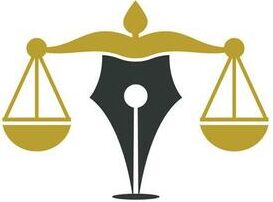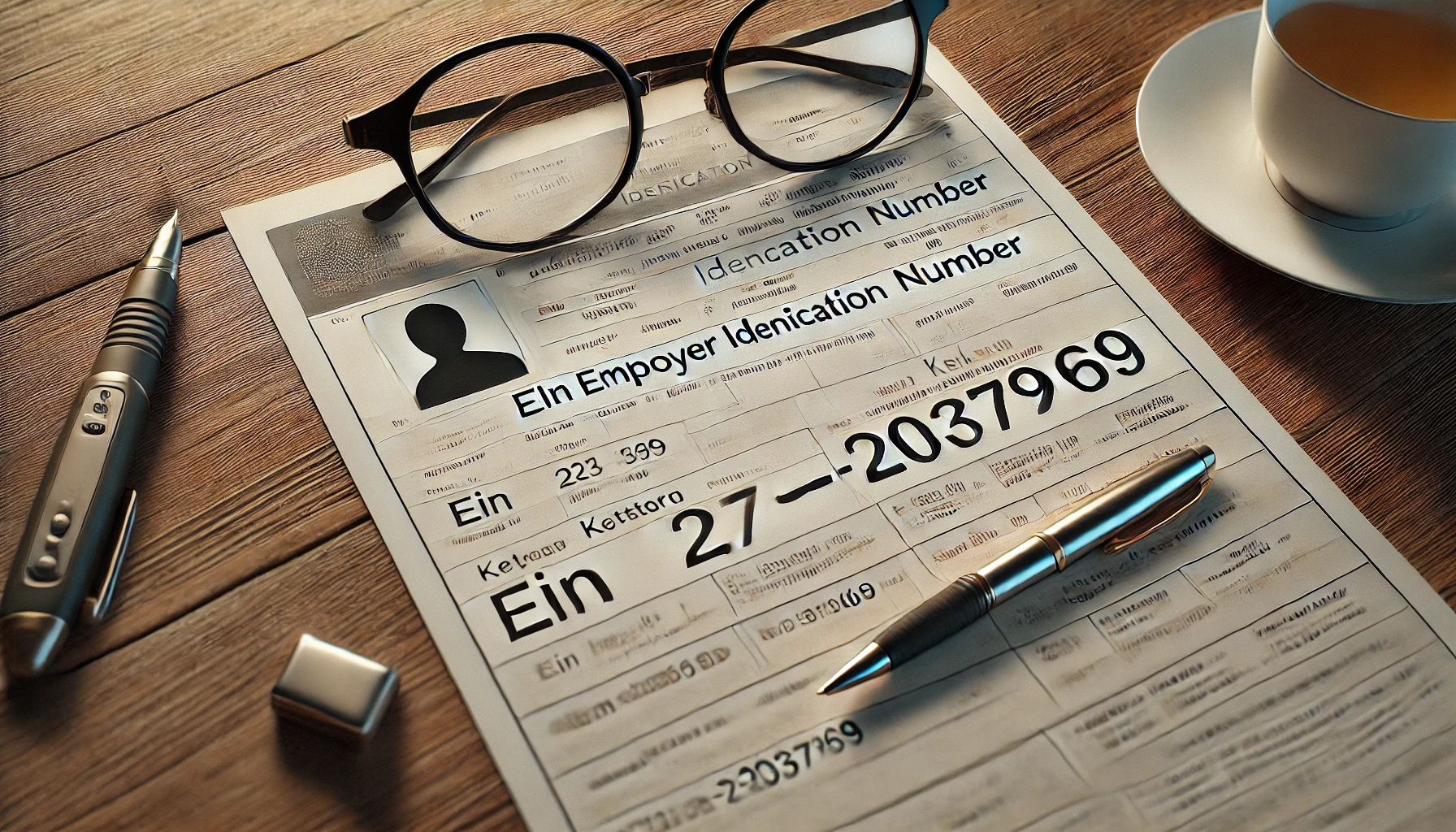EIN 27-2037969 is a unique Employer Identification Number issued by the IRS to a specific entity. This number serves as a key identifier for businesses and organizations for tax purposes.
EINs are critical for various administrative processes, including filing taxes, applying for business licenses, and opening bank accounts. Understanding the significance of EIN 27-2037969 is essential for any entity operating in the United States.
The number is often required when hiring employees, as it helps in reporting employment taxes accurately. Overall, EIN 27-2037969 plays a crucial role in ensuring compliance with federal regulations.
Importance of EINs in Business Operations
Employer Identification Numbers (EINs) are vital for smooth business operations. They help distinguish one business entity from another, reducing confusion in financial and legal transactions.
- Tax Compliance: EINs are necessary for accurately reporting income and employment taxes to the IRS.
- Banking Requirements: Most banks require an EIN to open a business account, ensuring proper identification.
- Business Licenses: Many states require an EIN when applying for business licenses and permits.
The importance of having an EIN extends to building credibility and establishing a formal business presence.
How to Verify EIN 27-2037969
Verifying EIN 27-2037969 is a straightforward process that ensures the number is valid and correctly associated with the entity. The IRS provides various methods for verification.
One of the easiest ways to verify an EIN is to contact the IRS directly via their Business & Specialty Tax Line. They can confirm whether the EIN is active and provide details about the associated entity.
Additionally, you can check state databases or business registries that may list EINs along with other business information. This verification is crucial to avoid complications in tax filings and business operations.
Tax Implications of EIN 27-2037969
EIN 27-2037969 has significant tax implications for the associated entity. It is required for filing various tax forms, including income tax returns and employment tax reports.
Having an EIN helps businesses comply with federal tax laws, ensuring that income and taxes are reported accurately. Failure to comply can lead to penalties and interest charges from the IRS.
- Reporting Requirements: Businesses must use their EIN for all tax-related documentation.
- Employment Taxes: An EIN is necessary for reporting wages and withholding taxes for employees.
It is crucial to comprehend these tax ramifications in order to preserve compliance and stay out of trouble with the law.
Steps to Obtain an EIN for Your Business
Obtaining an EIN for your business is a simple and free process. First, ensure that your business is eligible, which typically requires that it operates in the U.S. or its territories.
You can apply online through the IRS website, where the application process is straightforward. The online application usually provides the EIN immediately upon completion.
Alternatively, you can apply via mail or fax, but these methods take longer to process. Having your EIN is crucial for various business operations, so starting this process early is advisable.
Understanding the Structure of EINs
EINs consist of nine digits formatted as XX-XXXXXXX. The first two digits usually represent the prefix assigned to the state where the entity is registered, while the remaining digits are unique to the business.
This structure allows the IRS to categorize and manage EINs efficiently. Each EIN is unique, ensuring that no two businesses can have the same number, which is critical for accurate record-keeping.
Understanding this structure is vital for correctly entering and reporting the EIN on various forms and documents.
Common Uses for EIN 27-2037969
EIN 27-2037969 is used for various purposes that are essential for business operations. One primary use is for tax reporting, where the EIN is required for filing tax returns and paying federal taxes.
- Opening Bank Accounts: Many financial institutions require an EIN to open business accounts.
- Applying for Loans: Banks often request an EIN when processing loan applications for businesses.
- Hiring Employees: An EIN is necessary for reporting employment taxes for staff.
These common uses illustrate how critical EIN 27-2037969 is for running a business effectively.
What to Do If You Lose Your EIN
If you lose your EIN, it is essential to take steps to recover it. The first action is to search for any documents that may contain the EIN, such as tax returns or bank statements.
If those documents are unavailable, you can contact the IRS for assistance. They can help verify your identity and provide you with the EIN.
- Keep Records Secure: It’s advisable to store your EIN in a secure place to avoid losing it in the future.
- Backup Documentation: Consider having copies of important documents that include your EIN.
Taking these steps will ensure that you can quickly recover your EIN when needed.
The Role of EINs in Nonprofit Organizations
EINs are equally important for nonprofit organizations. Like for-profit entities, nonprofits need an EIN for tax reporting and compliance purposes.
An EIN is required for nonprofits to apply for tax-exempt status under section 501(c)(3) of the Internal Revenue Code. This status is vital for receiving charitable donations and grants.
- Banking Needs: Nonprofits use their EIN to open bank accounts and manage finances.
- Transparency and Accountability: Having an EIN helps maintain credibility with donors and funding agencies.
Overall, EINs are integral to the operational success of nonprofit organizations.
EIN 27-2037969: Case Studies and Examples
Analyzing EIN 27-2037969 through case studies can provide practical insights into its application. For instance, a small business may leverage this EIN to secure funding from a financial institution.
In another example, a nonprofit organization might utilize EIN 27-2037969 to establish tax-exempt status, facilitating its mission to raise funds for community projects.
- Funding Access: Successful funding applications often require a valid EIN.
- Project Implementation: Nonprofits using their EIN effectively can enhance community engagement.
These case studies highlight the real-world impact and importance of EIN 27-2037969.
Frequently Asked Questions About EINs
As awareness of EINs grows, several common questions arise. Addressing these FAQs can help clarify the significance and applications of EINs.
- What is an EIN?
An EIN, or Employer Identification Number, is a unique number assigned by the IRS for tax identification purposes. - Can I use my Social Security Number instead of an EIN?
Sole proprietors can use their Social Security Number, but obtaining an EIN is recommended for added security. - How do I apply for an EIN?
You can apply online through the IRS website, by mail, or by fax.
These FAQs help clarify the relevance and utility of EINs for various entities.
What’s Next for Entities Associated with EIN 27-2037969?
Looking ahead, entities associated with EIN 27-2037969 should focus on maintaining compliance with tax regulations. Staying informed about changes in tax laws will be crucial for ongoing operations.
- Regular Compliance Checks: Organizations should periodically review their practices to ensure compliance with IRS regulations.
- Education and Training: Providing resources and training for staff can enhance understanding of EIN-related responsibilities.
As businesses continue to evolve, the importance of EIN 27-2037969 will remain significant for effective tax reporting and compliance.
Final Thoughts on EIN 27-2037969
In conclusion, EIN 27-2037969 is an essential identifier that plays a critical role in the operations of both for-profit and nonprofit organizations. Understanding its significance, applications, and implications is vital for anyone involved in business or organizational management.
As regulations continue to evolve, staying informed about EINs and their requirements will help ensure compliance and operational success. Embracing the principles surrounding EINs can lead to better organizational practices and improved relationships with stakeholders.

